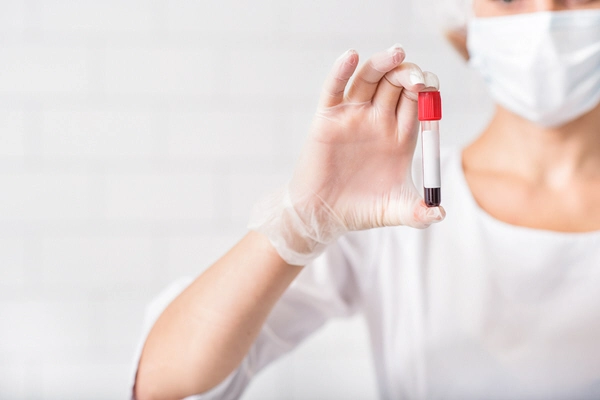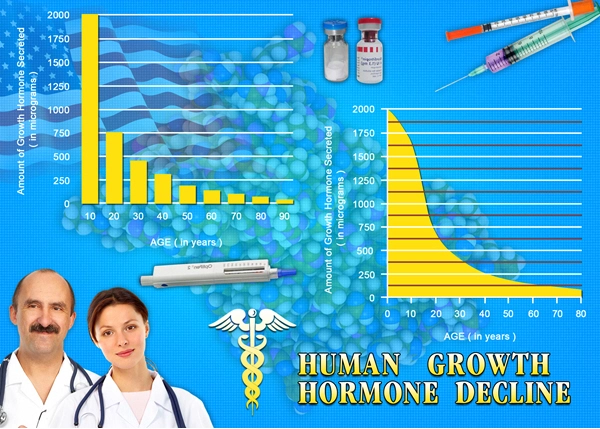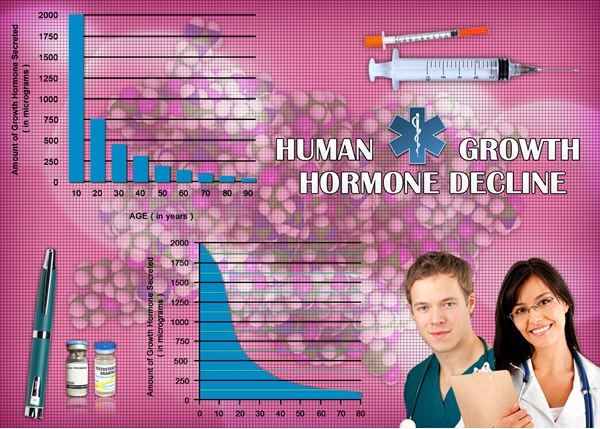Introduction
Low libido, or a decreased interest in sexual activity, is a common concern among young American males. Understanding the medical patterns associated with this condition is crucial for effective diagnosis and treatment. This article delves into the various factors contributing to low libido in this demographic, offering insights into both physiological and psychological aspects.
Physiological Factors
Several physiological factors can contribute to low libido in young American males. One of the primary causes is hormonal imbalance, particularly low testosterone levels. Testosterone is a key hormone that influences sexual desire, and its deficiency can lead to a noticeable decrease in libido. Conditions such as hypogonadism, where the body does not produce enough testosterone, are increasingly diagnosed in young men.
In addition to hormonal imbalances, chronic illnesses such as diabetes and cardiovascular diseases can also impact sexual health. These conditions can lead to vascular issues, reducing blood flow to the genital area and thereby affecting sexual function. Moreover, medications used to treat these chronic conditions, such as antihypertensives and antidepressants, often have side effects that can diminish libido.
Psychological Factors
Psychological factors play a significant role in low libido among young American males. Stress, anxiety, and depression are prevalent issues that can severely impact sexual desire. The fast-paced lifestyle and high expectations placed on young men in the United States can lead to chronic stress, which in turn can suppress libido.
Relationship issues also contribute to low libido. Problems such as poor communication, unresolved conflicts, and lack of emotional intimacy can lead to a decreased interest in sexual activity. Additionally, the influence of pornography and unrealistic sexual expectations can create performance anxiety, further exacerbating the issue.
Lifestyle Influences
Lifestyle choices are another critical aspect of low libido in young American males. Poor diet, lack of exercise, and substance abuse can all contribute to this condition. Obesity, for instance, is linked to lower testosterone levels and can lead to sexual dysfunction. Similarly, excessive alcohol consumption and smoking have been shown to negatively impact sexual health.
Sleep quality also plays a vital role in maintaining a healthy libido. Young men who suffer from sleep disorders or who do not get adequate rest may experience a decline in sexual desire. Ensuring a balanced lifestyle with proper nutrition, regular physical activity, and sufficient sleep can help mitigate the risk of low libido.
Diagnostic Approaches
Diagnosing low libido in young American males involves a comprehensive approach. Healthcare providers typically start with a detailed medical history and physical examination. Blood tests to measure hormone levels, particularly testosterone, are essential. Additionally, psychological assessments may be necessary to identify any underlying mental health issues contributing to the condition.
In some cases, further diagnostic tests such as ultrasound or MRI may be required to rule out physical abnormalities. A multidisciplinary approach, involving endocrinologists, urologists, and mental health professionals, is often the most effective way to address low libido comprehensively.
Treatment Strategies
Treatment for low libido in young American males varies based on the underlying cause. For hormonal imbalances, testosterone replacement therapy may be recommended. However, this should be approached cautiously, as it can have side effects and is not suitable for everyone.
For psychological factors, therapy can be highly beneficial. Cognitive-behavioral therapy (CBT) and couples counseling can address issues such as stress, anxiety, and relationship problems. In cases where medication is a contributing factor, adjusting the dosage or switching to an alternative drug may help.
Lifestyle modifications are also a cornerstone of treatment. Encouraging young men to adopt healthier habits, such as regular exercise, a balanced diet, and reduced alcohol and tobacco use, can significantly improve libido. Additionally, stress management techniques, such as mindfulness and meditation, can be effective in reducing psychological barriers to sexual desire.
Conclusion
Low libido in young American males is a multifaceted issue influenced by physiological, psychological, and lifestyle factors. Understanding these medical patterns is essential for developing effective treatment strategies. By addressing the root causes and promoting a holistic approach to health, young men can overcome this common challenge and enjoy a fulfilling sexual life.

- Revitalizing Passion: Effective Strategies for Combating Low Libido in Long-term Relationships [Last Updated On: February 21st, 2025] [Originally Added On: February 21st, 2025]
- Revolutionizing the Landscape of Sexual Health: Addressing Low Libido through Medical Science [Last Updated On: March 2nd, 2025] [Originally Added On: March 2nd, 2025]
- Comprehensive Guide to Enhancing Male Libido: Understanding Causes and Exploring Treatment Options [Last Updated On: March 3rd, 2025] [Originally Added On: March 3rd, 2025]
- Understanding Low Libido in Men: Causes, Impact, and Treatments [Last Updated On: March 4th, 2025] [Originally Added On: March 4th, 2025]
- Exploring Physical Causes and Treatments for Low Libido in American Males [Last Updated On: March 4th, 2025] [Originally Added On: March 4th, 2025]
- Exploring Hormonal Influences on Male Libido and Sexual Health [Last Updated On: March 5th, 2025] [Originally Added On: March 5th, 2025]
- Comprehensive Guide to Understanding and Managing Low Libido in Men [Last Updated On: March 6th, 2025] [Originally Added On: March 6th, 2025]
- Unraveling the Link Between Anxiety and Diminished Sexual Desire in American Males [Last Updated On: March 6th, 2025] [Originally Added On: March 6th, 2025]
- Understanding and Managing Post-Menopausal Libido Decline: A Comprehensive Guide for Women [Last Updated On: March 7th, 2025] [Originally Added On: March 7th, 2025]
- Understanding and Managing Low Libido in Men: Causes, Impacts, and Strategies for Improvement [Last Updated On: March 8th, 2025] [Originally Added On: March 8th, 2025]
- The Interplay Between Mental Health and Libido: Understanding and Addressing Low Sexual Desire [Last Updated On: March 9th, 2025] [Originally Added On: March 9th, 2025]
- Unveiling the Link Between Chronic Diseases and Low Libido in American Males [Last Updated On: March 12th, 2025] [Originally Added On: March 12th, 2025]
- Exploring Effective Medical Therapies for Low Libido in Postpartum American Women [Last Updated On: March 13th, 2025] [Originally Added On: March 13th, 2025]
- Revolutionizing Intimacy: Cutting-Edge Medical Treatments for Low Libido in American Males [Last Updated On: March 15th, 2025] [Originally Added On: March 15th, 2025]
- Low Libido and Depression in American Males: Causes, Impacts, and Holistic Treatments [Last Updated On: March 18th, 2025] [Originally Added On: March 18th, 2025]
- Psychological Factors Impacting Low Libido in American Males: Insights and Solutions [Last Updated On: March 18th, 2025] [Originally Added On: March 18th, 2025]
- Medication-Induced Low Libido in American Males: Causes, Mechanisms, and Management Strategies [Last Updated On: March 18th, 2025] [Originally Added On: March 18th, 2025]
- Low Libido in American Men: Health Risks and Importance of Medical Advice [Last Updated On: March 19th, 2025] [Originally Added On: March 19th, 2025]
- Exploring Causes and Treatments for Low Libido in American Men [Last Updated On: March 20th, 2025] [Originally Added On: March 20th, 2025]
- Natural Supplements for Low Libido in American Males: Ginseng, Maca, L-Arginine [Last Updated On: March 21st, 2025] [Originally Added On: March 21st, 2025]
- Medication-Induced Low Libido: Causes, Mechanisms, and Management Strategies for American Men [Last Updated On: March 21st, 2025] [Originally Added On: March 21st, 2025]
- Understanding and Addressing Low Libido in American Males: Causes and Solutions [Last Updated On: March 21st, 2025] [Originally Added On: March 21st, 2025]
- Innovative Treatments for Low Libido in Men: Hormonal, Psychological, and Lifestyle Approaches [Last Updated On: March 22nd, 2025] [Originally Added On: March 22nd, 2025]
- Understanding and Boosting Low Libido in American Males: A Holistic Approach [Last Updated On: March 22nd, 2025] [Originally Added On: March 22nd, 2025]
- Chronic Illness Impact on Male Libido: Understanding and Managing Sexual Health [Last Updated On: March 22nd, 2025] [Originally Added On: March 22nd, 2025]
- Exploring Medical Causes and Treatments for Low Libido in American Males [Last Updated On: March 22nd, 2025] [Originally Added On: March 22nd, 2025]
- Low Libido in American Males During Partner's Lactation: Causes and Management Strategies [Last Updated On: March 22nd, 2025] [Originally Added On: March 22nd, 2025]
- Hyperthyroidism and Low Libido in American Males: Mechanisms, Diagnosis, and Treatment [Last Updated On: March 23rd, 2025] [Originally Added On: March 23rd, 2025]
- Diabetes and Low Libido in American Males: Mechanisms, Management, and Future Treatments [Last Updated On: March 23rd, 2025] [Originally Added On: March 23rd, 2025]
- Effective Treatments for Low Libido in American Males: Hormonal, Pharmacological, and Psychological Approaches [Last Updated On: March 23rd, 2025] [Originally Added On: March 23rd, 2025]
- Postpartum Libido Challenges for American Males: Causes and Strategies for Revival [Last Updated On: March 23rd, 2025] [Originally Added On: March 23rd, 2025]
- Understanding and Addressing Low Libido in American Men: Causes, Impacts, and Treatments [Last Updated On: March 23rd, 2025] [Originally Added On: March 23rd, 2025]
- Low Libido in Men: Causes, Medical Solutions, and Lifestyle Changes [Last Updated On: March 23rd, 2025] [Originally Added On: March 23rd, 2025]
- Navigating Low Libido in American Men: Medical, Psychological, and Holistic Approaches [Last Updated On: March 23rd, 2025] [Originally Added On: March 23rd, 2025]
- Understanding and Addressing Low Libido in Women Over 50: A Guide for Men [Last Updated On: March 23rd, 2025] [Originally Added On: March 23rd, 2025]
- Understanding and Treating Low Libido in American Men: Causes and Solutions [Last Updated On: March 24th, 2025] [Originally Added On: March 24th, 2025]
- Understanding and Treating Low Libido in American Men: Causes and Solutions [Last Updated On: March 24th, 2025] [Originally Added On: March 24th, 2025]
- Understanding Low Libido in American Males: Causes, Implications, and Treatment Options [Last Updated On: March 24th, 2025] [Originally Added On: March 24th, 2025]
- Sudden Low Libido in American Males: Causes, Diagnosis, and Treatment Strategies [Last Updated On: March 24th, 2025] [Originally Added On: March 24th, 2025]
- Managing Low Libido in Male Surgical Patients: Causes, Diagnosis, and Treatment Strategies [Last Updated On: March 24th, 2025] [Originally Added On: March 24th, 2025]
- Chronic Pain and Low Libido in American Males: Medical Links and Holistic Treatments [Last Updated On: March 25th, 2025] [Originally Added On: March 25th, 2025]
- Managing Age-Related Low Libido in American Men: Medical and Lifestyle Approaches [Last Updated On: March 26th, 2025] [Originally Added On: March 26th, 2025]
- Low Libido in American Males: Causes, Diagnosis, and Effective Treatment Strategies [Last Updated On: March 26th, 2025] [Originally Added On: March 26th, 2025]
- Low Libido in Men: Causes, Impacts, and Seeking Effective Treatments [Last Updated On: March 26th, 2025] [Originally Added On: March 26th, 2025]
- Understanding and Treating Low Libido in American Males: Causes and Solutions [Last Updated On: March 26th, 2025] [Originally Added On: March 26th, 2025]
- Effective Treatments for Low Libido in Men: Medical and Lifestyle Approaches [Last Updated On: March 26th, 2025] [Originally Added On: March 26th, 2025]
- Low Libido in American Males: Treatments, Risks, and Holistic Management Strategies [Last Updated On: March 26th, 2025] [Originally Added On: March 26th, 2025]
- Low Libido and Unhappiness in American Males: A Comprehensive Medical Analysis [Last Updated On: March 26th, 2025] [Originally Added On: March 26th, 2025]
- Managing Low Libido in American Males: Causes, Treatments, and Emerging Therapies [Last Updated On: March 27th, 2025] [Originally Added On: March 27th, 2025]
- Understanding and Treating Low Libido in American Men: A Comprehensive Guide [Last Updated On: March 27th, 2025] [Originally Added On: March 27th, 2025]
- Hypertension's Impact on Male Libido: Physiological and Psychological Connections [Last Updated On: March 27th, 2025] [Originally Added On: March 27th, 2025]
- Low Libido in American Women: A Rising Epidemic? [Last Updated On: March 27th, 2025] [Originally Added On: March 27th, 2025]
- Managing Low Libido in American Males Post-Chemotherapy: Medical and Lifestyle Approaches [Last Updated On: March 27th, 2025] [Originally Added On: March 27th, 2025]
- Strategies to Boost Low Libido in American Males: Medical and Lifestyle Approaches [Last Updated On: March 27th, 2025] [Originally Added On: March 27th, 2025]
- Alcohol's Impact on Libido: Hormonal, Neurological, and Psychological Effects in American Males [Last Updated On: March 27th, 2025] [Originally Added On: March 27th, 2025]
- Low Libido in American Male Athletes: Medical Insights and Management Strategies [Last Updated On: March 27th, 2025] [Originally Added On: March 27th, 2025]
- Post-Surgery Low Libido in Men: Causes, Impacts, and Recovery Strategies [Last Updated On: March 28th, 2025] [Originally Added On: March 28th, 2025]
- Low Libido in New Fathers: Causes, Impacts, and Solutions Post-Pregnancy [Last Updated On: March 28th, 2025] [Originally Added On: March 28th, 2025]
- Exploring Bidirectional Links Between Low Libido and Weight Gain in American Males [Last Updated On: March 28th, 2025] [Originally Added On: March 28th, 2025]
- Understanding and Treating Low Libido in American Men: A Holistic Approach [Last Updated On: March 28th, 2025] [Originally Added On: March 28th, 2025]
- Exploring Causes and Solutions for Low Libido in American Males [Last Updated On: March 28th, 2025] [Originally Added On: March 28th, 2025]
- Low Libido in American Males: Causes, Lifestyle Solutions, and Professional Help [Last Updated On: March 29th, 2025] [Originally Added On: March 29th, 2025]
- Revitalizing Male Libido: Hormonal, Lifestyle, and Psychological Strategies [Last Updated On: March 29th, 2025] [Originally Added On: March 29th, 2025]
- Chronic Low Libido in American Males: Medical Signs and Underlying Causes [Last Updated On: March 30th, 2025] [Originally Added On: March 30th, 2025]
- Strategies to Combat Low Libido in Healthy American Males: A Comprehensive Approach [Last Updated On: March 31st, 2025] [Originally Added On: March 31st, 2025]
- Understanding Low Libido in Women: Medical Insights for American Males [Last Updated On: April 1st, 2025] [Originally Added On: April 1st, 2025]
- Medical Causes and Solutions for Low Libido in American Men [Last Updated On: April 1st, 2025] [Originally Added On: April 1st, 2025]
- Antidepressants and Low Libido in Men: Medical Insights and Management Strategies [Last Updated On: April 1st, 2025] [Originally Added On: April 1st, 2025]
- Rising Low Libido in American Males: Causes, Impacts, and Restoration Strategies [Last Updated On: April 6th, 2025] [Originally Added On: April 6th, 2025]
- Medical Procedures Impacting Libido in American Men: Causes and Management Strategies [Last Updated On: April 6th, 2025] [Originally Added On: April 6th, 2025]
- Understanding Low Libido in American Men: Causes and Holistic Solutions [Last Updated On: April 7th, 2025] [Originally Added On: April 7th, 2025]
- Exploring Causes and Solutions for Low Libido in American Males [Last Updated On: April 8th, 2025] [Originally Added On: April 8th, 2025]
- Understanding Low Libido: Causes, Treatments, and Future Hope for American Men [Last Updated On: April 8th, 2025] [Originally Added On: April 8th, 2025]
- Medical Reasons for Persistent Low Libido in American Men: A Comprehensive Overview [Last Updated On: April 9th, 2025] [Originally Added On: April 9th, 2025]
- Medical Factors Affecting Low Libido in Women Under 40: Insights for American Males [Last Updated On: April 9th, 2025] [Originally Added On: April 9th, 2025]
- Managing Low Libido in Men: Causes, Diagnosis, and Multifaceted Treatment Approaches [Last Updated On: April 9th, 2025] [Originally Added On: April 9th, 2025]
- Understanding and Managing Low Libido in American Males: A Holistic Approach [Last Updated On: April 10th, 2025] [Originally Added On: April 10th, 2025]
- Effective Solutions for Low Libido in Men: Medical and Lifestyle Approaches [Last Updated On: April 10th, 2025] [Originally Added On: April 10th, 2025]
- Medical Insights into Low Libido: Causes, Diagnosis, and Treatments for American Men [Last Updated On: April 11th, 2025] [Originally Added On: April 11th, 2025]
- Understanding and Diagnosing Low Libido in American Males: A Comprehensive Guide [Last Updated On: April 15th, 2025] [Originally Added On: April 15th, 2025]



List of USA state clinics - click a flag below for blood testing clinics.
Word Count: 670



















































